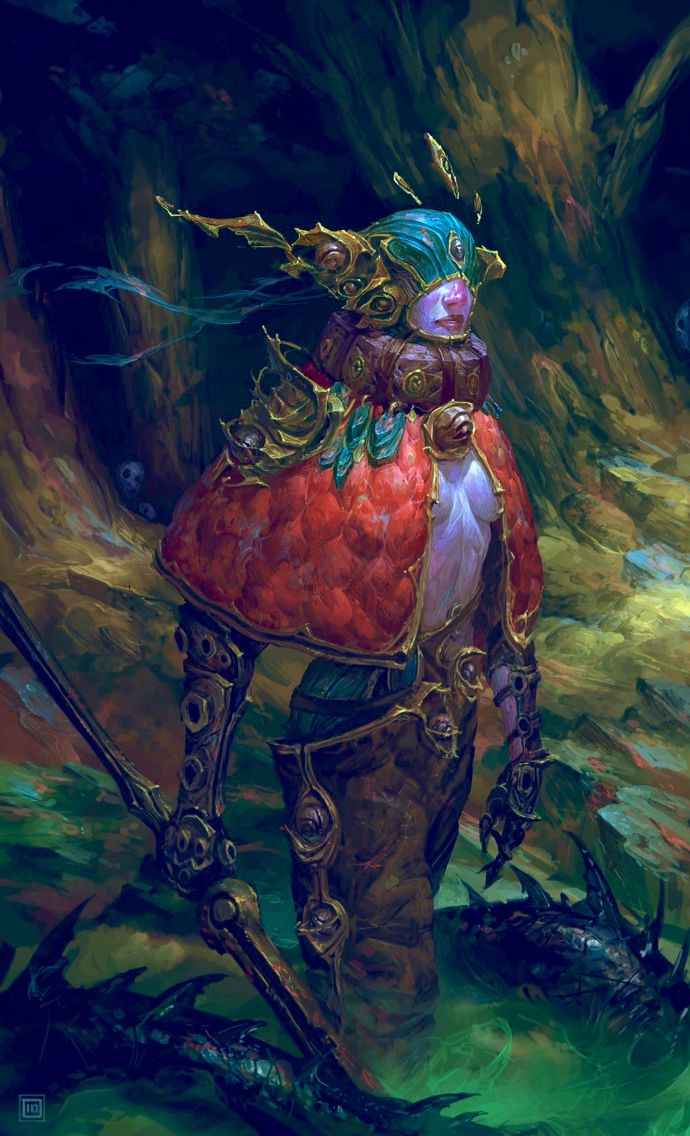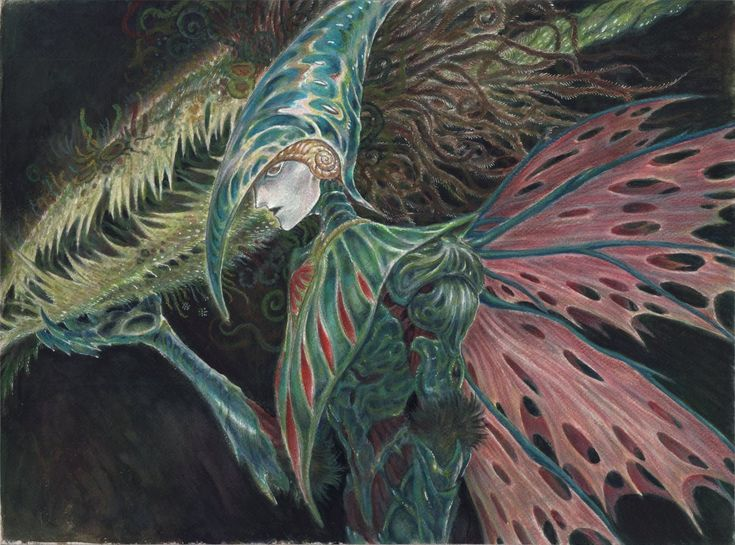I read Annihilation at a point in my life where I didn’t know what parts of me would remain.
In the belief nothing could change.
It was terrifying.
Beautiful.
Blissful.
Not because of the spores, or the unknowable shimmer,
but because the shimmer was not death.
Annihilation was invitation.
It is continuation.
A change that didn’t ask your permission.
A transformation that made you more yourself
by removing the self you thought you had.
They went into the shimmer and came out monstrous.
Or radiant.
Or gone.
Or all of the above.
And I felt something holy in that.
Not cosmic horror.
Cosmic bliss.
Bliss terrifies many because it undoes.
Not with pain—but with beauty too unbearable to survive unchanged.
There is still the sensation of a “you” to carry the before into the after—
but not the you from before.
And we’ve been trained—by movies, by myth, by medicine—to think that to lose yourself,
even if you continue,
is to die.
That a change in you is utter annihilation.
That change must be fought.
That the heroic path is one of resistance.
That the status quo is worth fighting for,
and those who want—or are the subjects of—change are
villains.
Monsters.
Beyond meaning.
We’re told that those who seek change want it for everyone,
and that those who defend the status quo accept others as they are.
But in my experience,
it’s often the opposite.
We are told that transcendence is suspicious.
That stoicism is strength.
That sensation is noise.
That epiphany is indulgence.
That real growth is stillness,
is acceptance of one’s place,
is order,
is measured breath.
I tried to make myself believe it too.
Fascinated as I’ve always been by change.
I read Marcus Aurelius too young.
Too earnestly.
Too desperately hoping to be better by being less.
I read him and learned: don’t let anything stick.
Become a Teflon being.
Call that acceptance.
Let it pass through you.
You are the sky. Your feelings are the clouds.
But my clouds didn’t pass.
I just put a dome between them and me,
and called that dome me.
And now, in therapy and in love,
on estrogen and in grief and joy for what my choices cost me,
I am learning:
I don’t want to be sky.
I don’t want to be the dome.
I am the weather.
I want to be storm, and candle, and thing-that-blushes.
Now they rain.
And I let them.
They soak me.
They are me.
They broke the soil and birthed forests of things I didn’t ask for.
But they bloomed into flowers I now love,
in all their strange and myriad forms—
for they are me, too.
And here’s the part I don’t want to leave out:
That after the shimmer, the shimmer doesn’t go away.
That after the rupture, something forms.
Not just radiant strangeness, but definition.
A new center.
A self re-shaped not into formlessness—but into a new form. Treasured. Definite. Held.
There is bliss, yes—but not in endless transformation. In what transformation makes.
In becoming thrall. In becoming fae. In becoming a thing that matters.
Moved by others. Or pulled by your own emotion like gravity.
Not always free—but centered.
Not always yourself—but this new self. That blushes. That burns. That belongs.
Fiercely or quietly.
Cosmic bliss might be the wave that breaks you.
But what comes after?
Sometimes it’s a name you choose to keep.
Sometimes it’s the garland in your hair.
Sometimes it’s someone else’s eyes on you, and the way you let them see.
There is a horror to this.
Not everyone wants to be reshaped.
To dissolve.
To let another thing find purchase in you
and find that thing to be more you.
To feel so much that you come out unrecognizable.
Still you, though.
But isn’t that also what love does?
What loss does?
What longing does?
What sex can do, if you let it?
So I ask you to consider:
If cosmic horror is the genre that explores what we fear to become,
what lies outside our understanding and threatens to unmake us—
Could cosmic bliss be the genre that lets us long for it?
To fall into the world, and like it.
To kiss something strange and become stranger still.
To feel yourself undone, and whisper:
yes.
But bliss is not universal.
One person’s bliss is another’s body horror.
One lover’s transformation is another’s uncanny loss.
And I never want to flatten that.
I don’t want to say change is good.
Only that it happens.
That it’s real.
And sometimes, it hurts beautifully.
Let us hold space for both.
For the one who longs to become—
and the one who claws to be the same.
For the sleeper who dreams of shedding names—
and the watcher who says,
“But I loved you just as you were.”
And the possibility to
"And I love you as you are now"
Let us allow ourselves to vacillate.
To explore.
To fear what we want.
To beg for something we cannot return from—
and tremble all the same.
I don’t write systems for this.
But I write in the shadow of it.
I write for the people who feel the tremor and don’t turn away.
Who sense the shimmer coming and say:
What if I stepped in?
What if it made me better?
Worse?
Both—different?
Still me.
More me than ever before.
What if I let go?
Not to die.
But to go on.
Changed.









Comments
Post a Comment